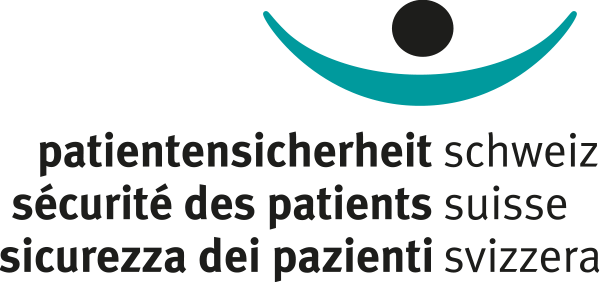
Degenerative Spine Disease
Do you have any questions? Benefit from personal advice on second medical opinion and choice of hospital:
+41 41 228 09 94
The spine is an articulated bone structure that supports and stabilises the upper body and allows movement. With age, many people frequently suffer from back pain, which is most often temporary.
In order to reduce or delay the processes of ageing and wear and tear, specifically on the intervertebral discs but on the vertebral bodies and joints as well, movement and nutritional measures have proven successful:
Whenever possible, avoid physical work involving heavy lifting.
Work consistently in a back-friendly manner – whether it is at the office or on a construction site. Gentle and relieving motion sequences are important to reduce postural damage and excessive strain on the spine.
In degenerative spine diseases due to wear and tear or overexertion, back-friendly sports such as swimming, walking or cycling are useful. Also, consider back exercises with warm-up, strengthening, loosening and stretching sequences.
Normal body weight reduces the mechanical stress on the spine and promotes a good posture.
Make sure you go for a balanced, low-salt diet: abundant in calcium (e.g. dairy products, figs, kale, walnuts) and vitamins (vegetables, fruits, herbs); alcohol in moderation.
Anti-inflammatory and analgesic medication helps to prevent acute pain. Adhere to the medical prescriptions.
In the event of non-specific back pain, X-rays are unnecessary in the first six weeks. They do not improve the treatment outcome in terms of pain, functionality and patient satisfaction. On the other hand, they cause unnecessary follow-up examinations, radiation exposure and costs. This has been shown by comparative studies between patient groups with and without X-rays.
To prevent the pain from intensifying, be cautious when moving and avoid jerky movements.
After the acute pain has subsided, have a physiotherapist instruct you on how to perform effective movement exercises so that consistent back training will be successful.t.
In 20 % of cases, back pain has a specific cause. This can be, for example, a herniated disc, spinal stenosis (narrowing of the spinal canal), or osteoporosis-related vertebral fractures. In this case, in-depth medical examinations are necessary. With neurological deficits (e.g. paralysis or loss of sensation in the legs) or when there is a suspicion of an infectious or malignant disease (e.g. of the abdominal organs), a medical evaluation with imaging techniques may be useful.
For medicinal therapies, we recommend that you use generic medicines instead of original preparations: They are just as effective and will allow you to save money thanks to their lower retention fee. In order to find generics, use our search function. You can also ask your doctor or pharmacist.
Your guides:
Further information:
(available in German, French and Italian)
While back pain due to degenerative changes in the initial stage can generally be alleviated effectively by physiotherapy, this succeeds increasingly less in the advanced stage. When painful malposition and limited mobility increase, or when neurological deficits such as sensory disturbances or paralysis occur, surgical intervention may come into question in order to restore the shape and stability of the spine, or to relieve pressure on the nerves and spinal cord.
Obtain additional security with an independent and neutral second medical opinion before deciding to undergo an operation. The indication for surgery and possible alternative therapies should first be comprehensively clarified and discussed with you. Especially in regard to spinal operations, a second opinion is also recommended by spinal specialists themselves. If you are covered by a hospital insurance at CONCORDIA, a second medical opinion is free of charge if you apply for it via the Lucerne Cantonal Hospital (LUKS).
Do you need surgery?
CONCORDIA has commissioned the institute B,B,S. Economic Consultants in Basel to evaluate the treatments and operations of the spine in all Swiss acute care hospitals – independently, neutrally, and according to statistical quality criteria.
The quality of inpatient treatment was assessed, along with the length of stay and the hospital costs.
During a personal conversation, we will show you, on the basis of the results, which hospitals throughout Switzerland have excelled over the years in the treatments and operations of the spine in terms of quality and efficiency.
Use our consulting offer to find out which hospital is most suitable for your treatment.
Naturally, you still have the choice of when and where you would like to be treated, in line with your basic and supplementary insurances.
Physiotherapeutic measures not only strengthen the back muscles, but also the abdominal muscles and pelvic floor. It may also take some time for you to regain confidence in yourself and your physical abilities.
If you need long term walking aids, it may be worth buying them instead of renting them.
Plan your appointments for outpatient physiotherapy so that you have enough time to go back and forth relaxed. Think about how best to get there, find out about public transport connections, or ask family members if they can drive you.
Living with a chronic illness requires very good self-management in order to be able to successfully master the various challenges in everyday life. Our Chronic Care Coaching can support you in doing so.
Your guides:
Further information:
Give us your feedback: What experiences have you had with the CONCORDIA Health Compass? Do you have questions about using it?
What suggestions do you have for us? Or maybe you didn't find what you were looking for?
Call us on +41 41 228 09 94. Or write your message to healthcompass@concordia.ch.
We would be happy to provide further assistance.



